NURS-6501C Week 1 Discussion: Alterations in Cellular Processes
1) Discussion Board: Alterations in Cellular Processes > Use this information to answer the questions on the Rubric.
Greeting students, for Week 1 DB, you have two options for the initial post. The initial post is due Wednesday at MN. For one of your peer responses, choose the opposite scenario for the response.
Option 1> MJ is a 16-year-old female presenting with urticaria, wheezing, voice change, and one episode of vomiting. The symptoms started shortly after eating lunch where she had a burrito with shrimp. The patient reports no known allergies but the urticaria started approximately 5 minutes after starting to eat.
The patient was given Benadryl, Solumedrol, Pepcid, an albuterol treatment and one injection of epinephrine. Shortly after treatment, symptoms started to improve.
Vitals signs
Before medications: BP – 80/52 HR – 126 O2 – 88% RR – 28
Post treatment medications: BP – 105/62 HR – 105 O2 – 98% RR – 18
Option 2> BC is a 38-year-old male with history of asthma. He is presenting with angioedema, hives, wheezing, wheezing and tachycardia. He reports no change in diet or exposures to anything new. He has one previous instance where he had similar symptoms. He was diagnosed with an anaphylactic reaction but there was no known cause found.
Vital Signs BP – 100/62 HR – 126 O2 – 90% RR – 28
Post an explanation of the disease highlighted in the scenario you were provided. Include the following in your explanation:
- Which genetic mutations are commonly associated with the disease?
- Why is the patient presenting with the specific symptoms described?
- Discuss the pathophysiological mechanisms of the disease in detail.
- What do the blood test results tell us about the disease and disease progression?
SOLUTION
Disease Explanation and Genetic Mutations
The presentation of angioedema, hives, wheezing, and tachycardia in BC is consistent with idiopathic anaphylaxis, a subtype of anaphylaxis without an identifiable allergen. Genetic mutations may predispose individuals to exaggerated immune responses. Notably, polymorphisms in the FCER1A gene affect IgE receptor expression, enhancing mast cell activation even in the absence of known allergens (Rogers, 2023). Variants in IL-4 and IL-13, which regulate Th2 immune responses, also contribute to hypersensitivity conditions. Given BC’s asthma history………………………..purchase the entire discussion post at $10 only
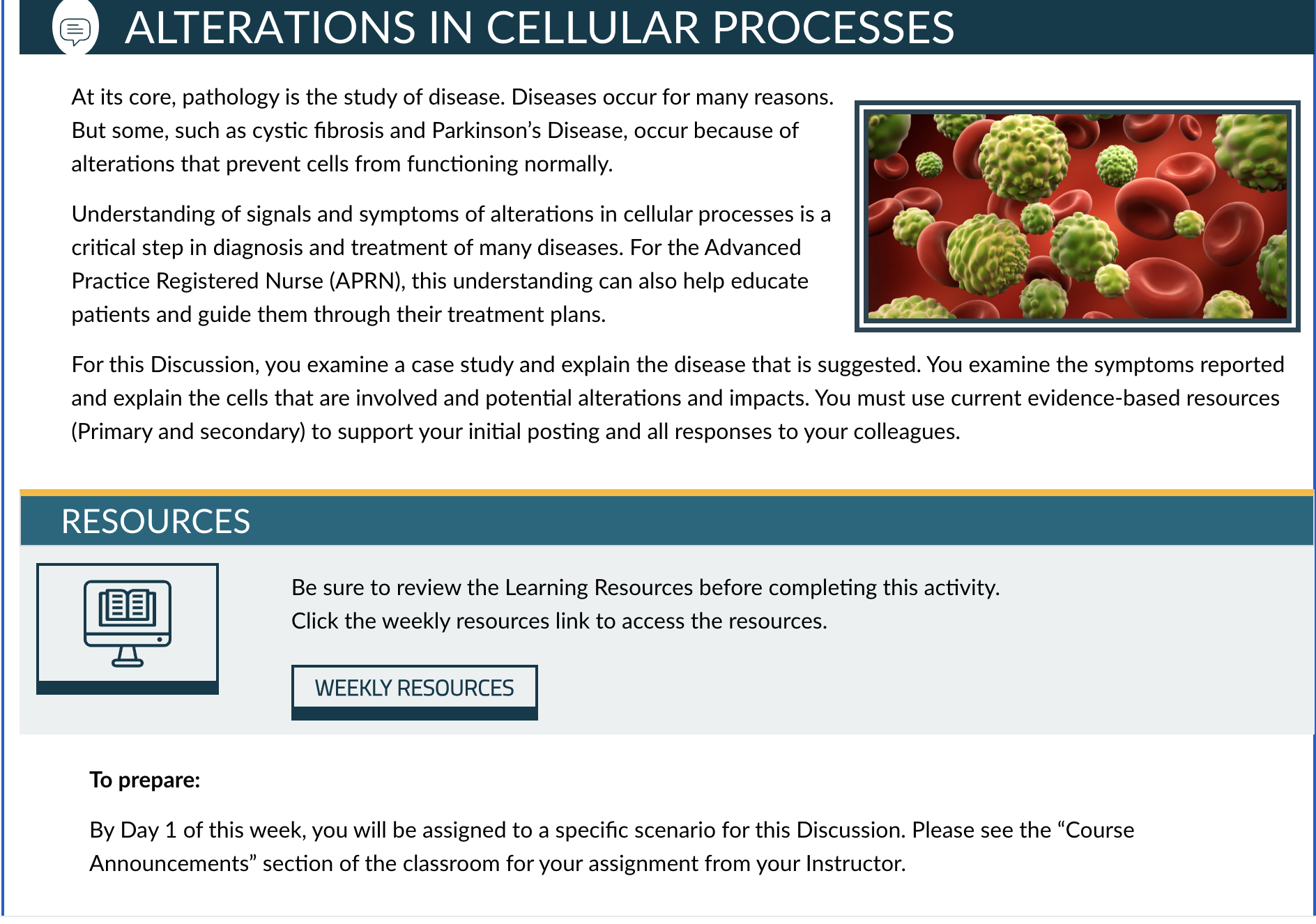
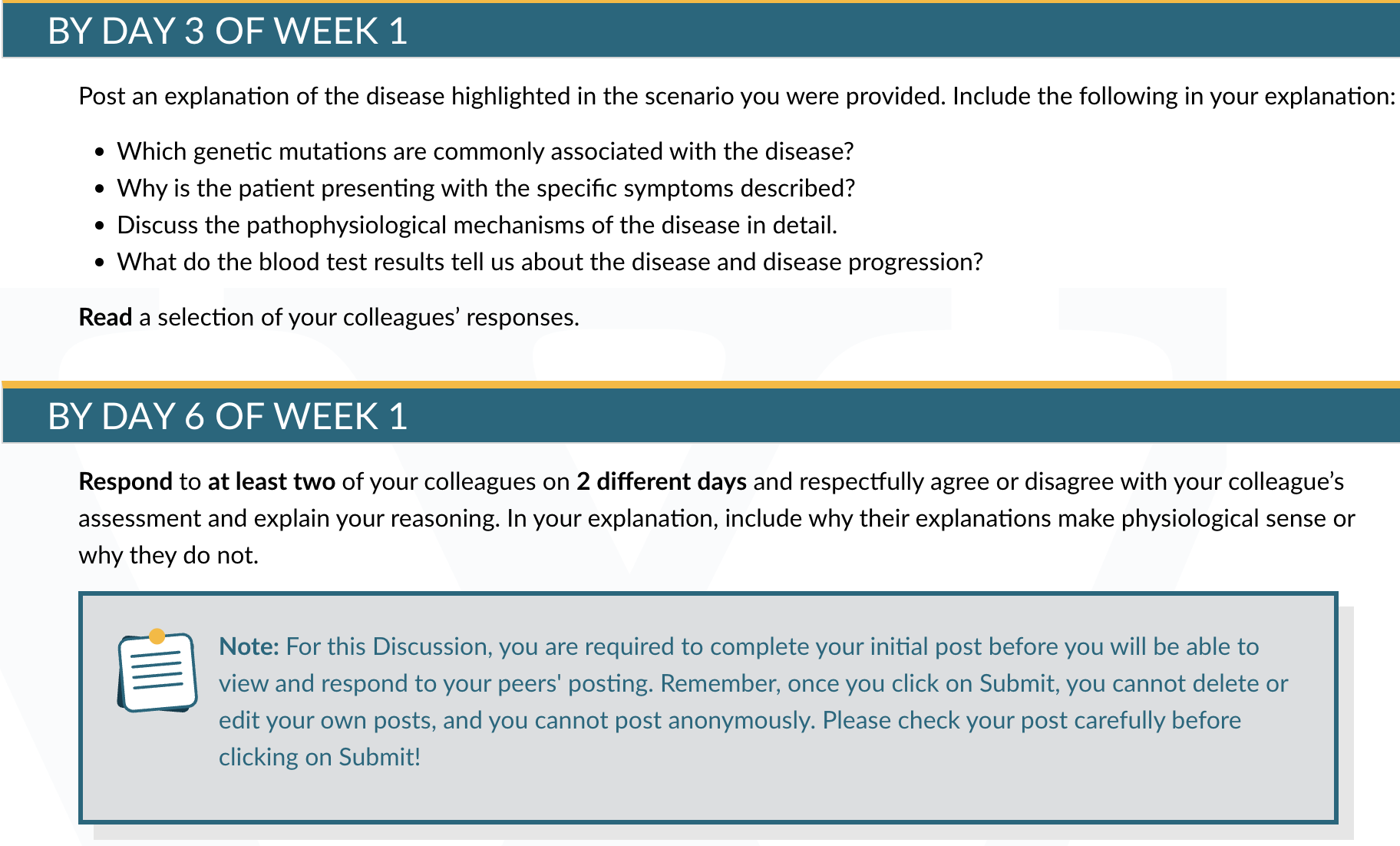
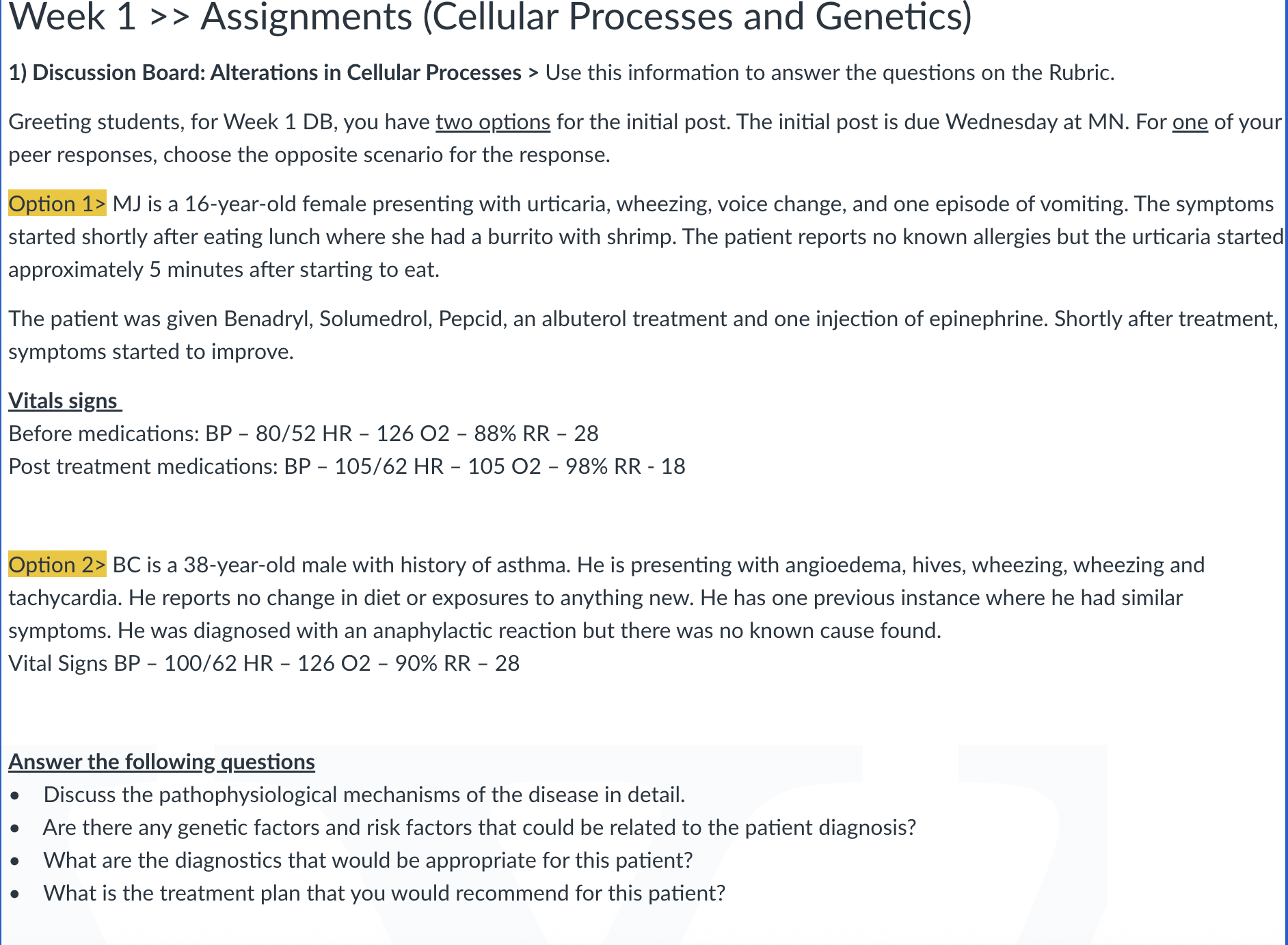
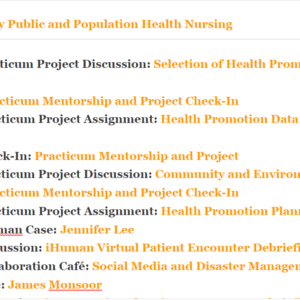
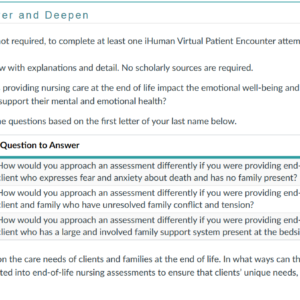
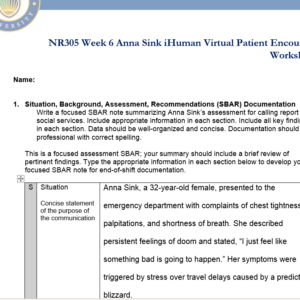
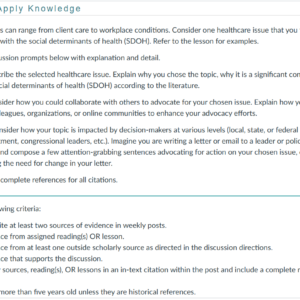
Reviews
There are no reviews yet.